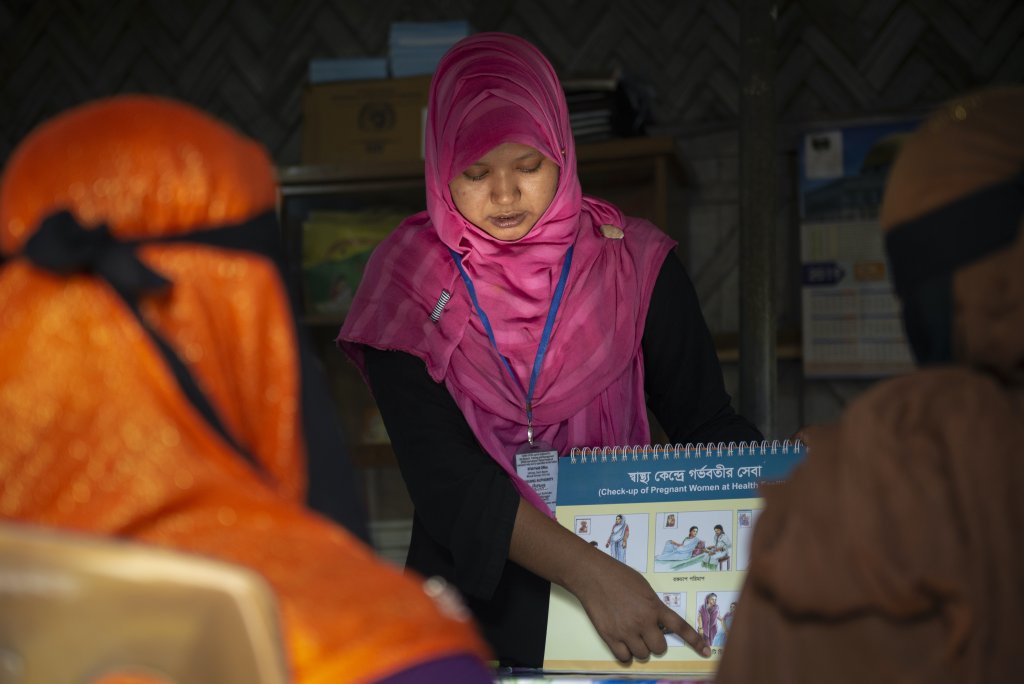Providing care during a pandemic and a refugee crisis: UNFPA’s work with Rohingya Refugees
In February of 2020, USA for UNFPA asked UNFPA supporters to share encouraging notes to frontline workers in the Rohingya refugee camps.
Read the heartwarming letters here.
This appreciation is needed more than ever, now that refugees have tested positive for coronavirus and healthcare workers are doing more work than ever. Over one million Rohingya refugees could be affected by the virus.
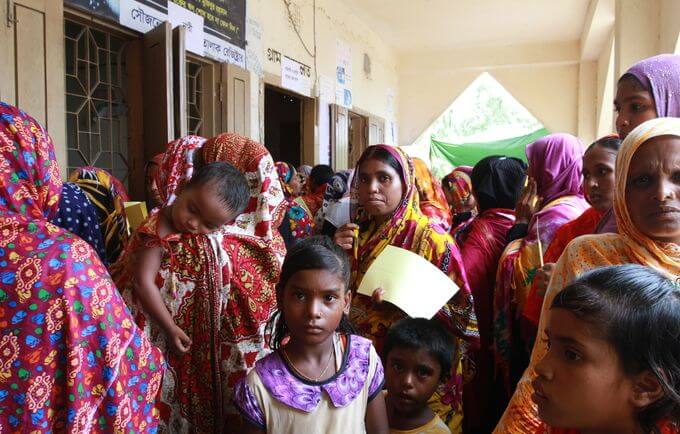
Cox’s Bazar, Bangladesh — UNFPA has been providing lifesaving care in Cox’s Bazar since the beginning of the Rohingya crisis in 2015. But, in addition to the COVID-19 pandemic, a series of crises have made it harder for UNFPA to reach as many people as possible.
Cyclone Bulbul hit Cox’s Bazar in November 2019, leaving schools and agricultural lands badly damaged. Despite UNFPA’s quick response, a gap in 2019 funding forced it to scale down programs like essential reproductive health services for women and girls.
Today, approximately 1.3 million Rohingya refugees in Bangladesh require humanitarian aid.
As of March 14, Cox’s Bazar district has been in a total lockdown, leaving the Rohingya population more vulnerable than ever before.
Refugees who live in crowded, landslide-prone and hygiene-poor conditions already have limited access to healthcare. Now, they face a restriction of humanitarian aid and a delay in crucial services to protect women and girls. Even more alarming is the projected rise in gender-based violence and child marriage, which increase during crises.
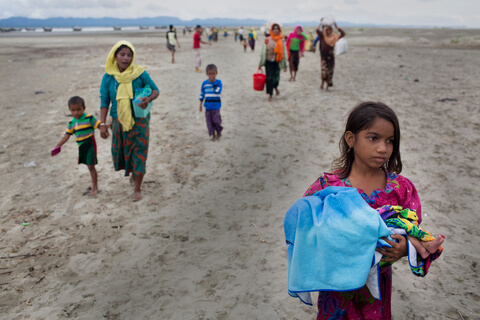
Refugees also have a higher risk of contracting COVID-19 due to the general lack of access to food, shelter, and healthcare. By default, they do not have access to water, soap, or the option of social distancing in cramped living conditions.
Now that there are confirmed cases in Cox’s Bazar, more than 1,900 Rohingya refugees are undergoing further isolation measures for testing. But much more will have to be done to avert the catastrophic effects that the pandemic may have on the Rohingya refugee camp.
UNFPA’s Lifesaving Services for Rohingya Refugees
Sexual Reproductive Health and Rights (SRHR)
UNFPA provides lifesaving services to Rohingya women and girls, including 24/7 safe delivery and newborn care. From supporting government policies on SRHR to deploying professional midwives, UNFPA is working to ensure that quality sexual and reproductive healthcare is available to all women and girls in the camps.
Every woman has the right to decide if, when, and with whom she has children. Every girl has the right to attend school and choose her future. And every woman and girl has the right to be free from violence. These rights do not go away, even in the most dire of circumstances.
In 2019, UNFPA provided over 123,000 family planning consultations to women who wanted them. Last year, UNFPA-trained birth attendants helped 13,000 women have a safe birth in the camps. An additional 84,000 emergency birth kits were distributed to pregnant women.
Especially during Bangladesh’s monsoon season, it is notoriously difficult to reach women with timely delivery care. Emergency birth kits provide pregnant women with all the tools they need to have a safe birth. Now that the pandemic has restricted movement of both Rohingya women and humanitarian aid, these birth kits will be essential to safeguarding the health of Rohingya mothers and babies.
In light of the pandemic, UNFPA updated their SHRH programs to better protect staff and Rohingya patients. Health facilities received personal protection equipment and reproductive health kits were distributed so that SHRH services can go uninterrupted. Just as important, UNFPA established a hand washing system at every health clinic, where volunteers are guiding Rohingya patients in hand washing and social distancing protocols.
Gender-based Violence in Emergencies
In crisis situations, immediate needs like food, water and shelter become the top-most priority, which often means attention to SRHR and gender-based violence (GBV) is overlooked. When health and security systems fall apart, women and girls become more vulnerable to violence.
UNFPA estimated 420,000 refugees were at risk of GBV in 2019 — this number will grow as the pandemic and monsoon season affect Cox’s Bazar.
In response, UNFPA is expanding their GBV outreach sessions. Following Cyclone Bulbul, the number of women who joined these sessions grew by the thousands each month. UNFPA reached a total of 17,234 people by the end of 2019.
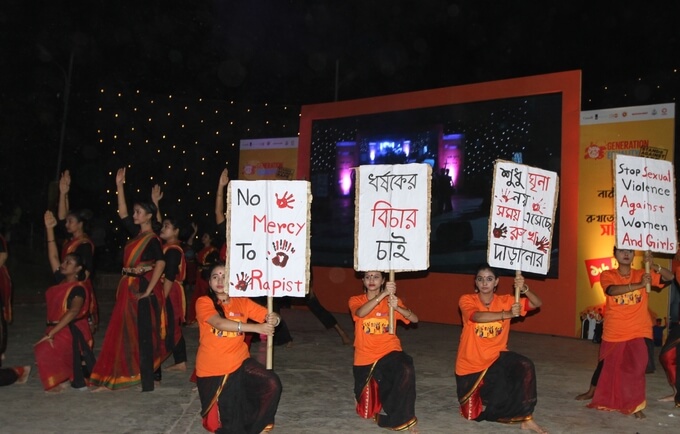
© UNFPA Bangladesh
Training health personnel is key to ensuring the health and safety of women and girls in the camps. Between 2019 and 2020, 1,050 health workers were trained on various aspects of GBV including the clinical management of rape. Now, they are undergoing training for COVID-19 awareness.
All 23 women-friendly safe spaces are still operating during COVID-19, giving women and girls a place to build community and providing survivors of GBV access to psychosocial counseling. These spaces are urgently needed now that COVID-19 will result in a significant rise of violence against women.
As humanitarian crises become more prolonged, building sustainable programs to address GBV and SRHR is crucial. Ten women-led community centers opened last year and 2,000 Rohingya women enrolled in training programs so that they can volunteer to help their community.
UNFPA is also including adolescents in this mission through life skills sessions. In the “Girls Shine” program, Rohingya girls are able to learn about topics like friendship, sexual health and contraception, building solidarity, and decision-making. “Champions of Change” reaches out to boys with information on conflict resolution, power and control, gender discrimination, and SRHR. Both programs are engaging young people as leaders in COVID-19 prevention.
.
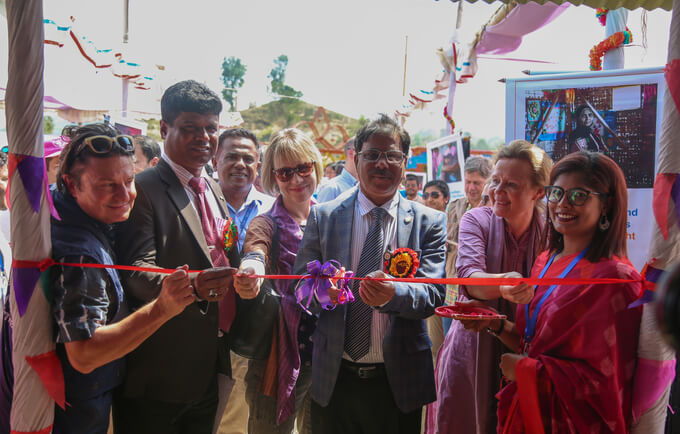
Even today, we can see the effects of the 2019 funding gaps. UNFPA scaled down SRHR programs, with some family planning service sites being eliminated altogether.
318,500 Rohingya refugees are women and girls of reproductive age who require access to family planning. An additional 31,200 pregnant women need prenatal and safe birth services. But without the necessary funding, these women and girls will be without crucial, and sometimes lifesaving services.
Amidst the COVID-19 pandemic, the need for funding is even more urgent. Your support of UNFPA’s work in Cox’s Bazar will help decide the outcome of the pandemic in the camps. Please donate today.
-Natalia Sanchez
